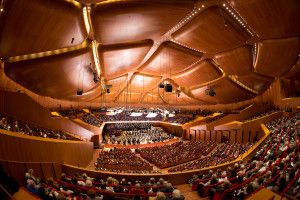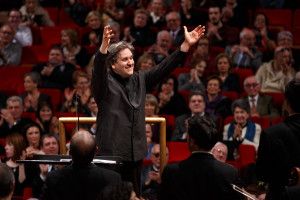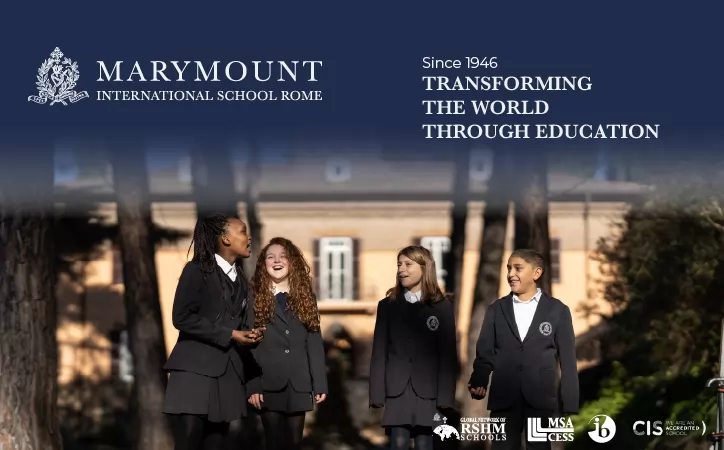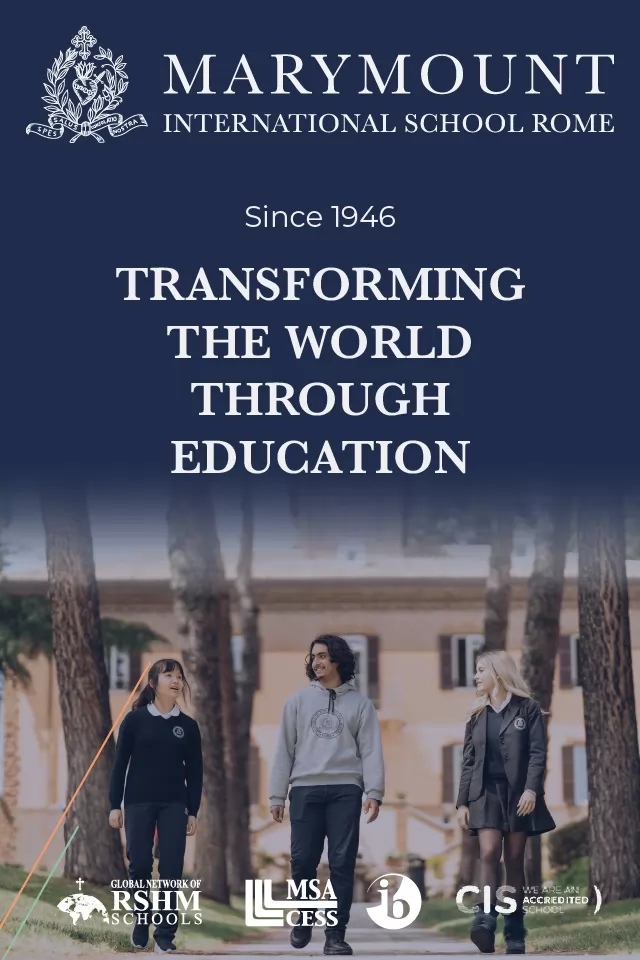Sir Antonio Pappano talks to Wanted in Rome about the special concert at the Foro Italico on 5 July and the importance S. Cecilia.
Think of taking a symphony orchestra out of its concert hall and moving it to a 6,000-seater, open-air sports stadium. It sounds like the stuff of pop groups but this is the brainchild of Sir Tony Pappano, musical director and chief conductor of Accademia S. Cecilia Orchestra and Chorus, and Michele Dall'Ongaro, head of the music academy's board. On 5 July, S. Cecilia goes to the Foro Italico in Rome to perform a live concert. What is on the programme? Beethoven's 9th symphony, of course.
The Foro Italico concert
Wanted in Rome
In some of the publicity for the concert at the Foro Italico you link music and sport. Could you expand on this?
Pappano
The coming together of a mass of people to watch a spectacle of any kind is a healthy thing, as long as the spectacle itself is worthy and is something that benefits mankind, if I may go so far. The idea of a community and a big crowd and the energy it produces from an audience point of view is really remarkable. Sport does this to a greater extent than classical music, there's no question about that. But the point of the concert is to share this great music that communicates something deep and joyous and full of hope. And why not aspire to the biggest audience you can?
Wanted in Rome
You mention the energy a large audience produces. How do you think this will change the way you and the orchestra performs? It must be different being and an outdoor space from being in a concert hall.
Pappano
There are challenges about doing a concert outdoors and it is certainly out of our routine, but it is important for any musical institution to take risks and go out of its normal performing space. I am very sensitive to the atmosphere created by audiences, whether in an opera house or a concert hall. This is especially so when we go on tour and meet so many new people and perform in new halls. If you have a sensitivity to what the audience is bringing to the event it can be very exciting; the energy creates almost a fever, and is quite different from that created by the audience in your usual concert space.
A special concert for Rome
Wanted in Rome
The Foro Italico concert wasn't in this season's original programming. Was it born spontaneously, almost a last-minute decision to stage this event?
Pappano
The decision for this concert was born of a desire to do something for the city, for Rome. It was something that Michele Dall'Ongaro (head of the S. Cecilia board since 2015) and I thought would be a change of routine, that it would produce a new atmosphere and would create a completely new audience. We wanted to do something for the city, for an audience that would more readily come to a sports arena than a concert hall.
Wanted in Rome
You expect the audience to be quite different, then?
Pappano
Oh yes. It's our great hope. This is something spontaneous but then there is also the planning. These things take time to plan. I would like this to become an annual event and it is my dream eventually to go out into the centre of the city, to perform in Piazza del Popolo or in front of the Colosseum.
Wanted in Rome
Pop stars and groups have played in front of the Colosseum so I wonder if you requested this, or was your first choice the Foro Italico?
Pappano
We would be talking about tremendous sums of money to stage such a concert at the Colosseum. It is just not very realistic for us at the moment. One step at a time is what I say, and we can build some sort of momentum.
Choosing Beethoven's 9th symphony
Wanted in Rome
Could you explain your motives for choosing to perform Beethoven's 9th symphony, the Hymn to Joy, which is also the anthem of the European Union?
Pappano
Beethoven has been very much a part of this season at S. Cecilia and will also be next season. We open in October with Beethoven's Fidelio. So it is a sort of continuity for the orchestra. The 9th symphony is a very popular piece but it is also demanding. The first, second and third movements – before we get to the part everyone knows – are very serious. Also the symphony involves the S. Cecilia chorus as well as the orchestra so it embraces the whole institution, which is important, as well as the soloists. There are not many pieces that do this. This seemed to be one that makes sense at this point in the season.
The benefits of touring
Wanted in Rome
You mention tours. You have a very full travel programme for the orchestra next year as well as a full programme in Rome. Could you talk about the changes in S. Cecilia under your guidance, both within the international context and within the city?
Pappano
We must look on tours within the whole strategy for S. Cecilia, which also includes recordings. We have a multi-pronged approach, the most important of which is developing a closer relationship with the audience in Rome. What I think has happened in the last ten years is that the audience really does feel it is their orchestra. It isn't a question of “us” and “them”, but a question of “we”. I really believe this. The warmth of the audience in following our programme and development is palpable.
The tours have helped the orchestra deepen their relationship with certain pieces, which they get to repeat rather than only playing them in Rome, so we are building a very strong repertoire. Also performing internationally in the halls where great orchestras play puts us in a different league, it raises our game and has given the orchestra a new confidence. We are not afraid now to play Bruckner in Dresden – we've done that, Mahler in Vienna – we've done that, Strauss's Alpine Symphony in Japan – we've done that too. We are taking risks but it is really paying off and the orchestra is taking that seriously.
The skills needed for recording
The recordings – and we have done several now – have also helped the orchestra develop. Recording needs a new set of skills, a different technique again, how to turn on the super energy and how to communicate with the microphone, how to seduce the microphone. The microphone is quick to pick up indifference, so you need to fascinate the microphone the whole time.
Wanted in Rome
In other words, recording is quite the opposite to an outdoor event.
Pappano
Yes, in the outdoor event you are bringing many people together; in a recording you are in a hermetically sealed studio and you have to have experience of how to seduce the microphone. I have that and the orchestra also now knows how to do this.
Programming a mix of classical and contemporary music
Wanted in Rome
Could you explain the importance of your policy of mixing classical with contemporary music in your concerts.
Pappano
We are bound as an institution to push the art form forward and provoke responses to that need. As with everything else there is good contemporary music and bad contemporary music. I am looking for music that communicates to the audience directly. So much of contemporary music is taking the audience as the last point of interest whereas it should be the first. I am concentrating mainly on Italian composers, but not only. Playing contemporary works is also fantastic training for the orchestra, to keep them informed and to give them the skills to make music out of contemporary works where the language can be a bit obtuse at first. I always try to find a story, and if the orchestra understands that story and we are in it together then we can really communicate music with emotion. The composers really appreciate that.
A modern orchestra
Wanted in Rome
I notice that all the way through this conversation you talk about the orchestra. You are also a soloist but you seem to have real emotional attachment to the orchestra.
Pappano
I perform rarely as a soloist, usually as accompanist or in a chamber orchestra, but as a conductor and especially as a music director there is a sort of paternal relationship with the orchestra and the institution. It's my job to stimulate, to push and to challenge the orchestra, this is how they grow and it gives them the courage to do what they are doing. The orchestra is now exposed like few orchestras in the world but they can handle that, partly because between the straight classics, between the two extremes of Bach, which we also play, and contemporary music they are now what I would call a modern orchestra and their horizons have been widened.
The difference between working in Rome and London
Wanted in Rome
Could you tell me the difference between your work in Rome and in London.
Pappano
They are two different institutions. In Rome there's the symphony orchestra and in London the opera. Some people find it strange that it should be this way round but that's the way it is, and they complement each other beautifully. This also fits with my identity as a British-born Italo-American. What I really try to do is to bring the English professionalism, discipline, flexibility and work ethic to Italy, and bring the colour, the temperament and the passion from Italy to England. But that is part of me and my personality. It is difficult to explain exactly what it is like.
The hopes for the new season
Wanted in Rome
Is there anything you are particularly looking forward to in the next S. Cecilia season?
Pappano
I am very much looking forward to Fidelio, which opens the season, also Schubert's 9th symphony, which we are playing for the first time, but there is so, so much more. Bach's St John's Passion is perhaps what I am looking forward to most. Yes, I am really looking forward to that.
Mary Wilsey
For more details of the concert on 5 July at Foro Italico and the new S. Cecilia season see the Accademia S. Cecilia website.
All photos by Musacchio and Ianniello




















